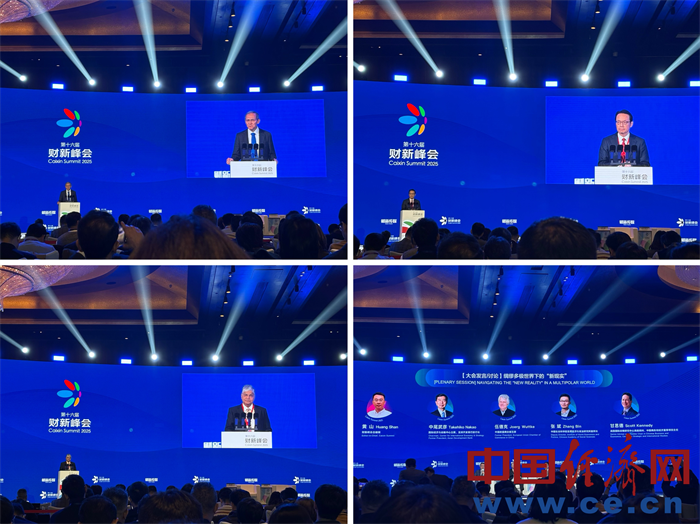by Wang Xiaotong
BEIJING, Nov 16 (China Economic Net) – Caixin Summit 2025, hosted by Caixin Media and Caixin Insight, concluded in Beijing on November 14th. With the theme of "Resilience and Patience", global political, business and academic leaders shared their insights on China's economy and addressing worldwide challenges with long-termism amid changes.
Former Kyrgyz Prime Minister Djoomart Otorbaev decoded China's economic marvel through "Three C" – Competition, Cooperation and Communication. He emphasized that fierce domestic competition has propelled China's industries to world-class standards, citing examples like Chinese electric vehicles and socks produced in Yiwu. He also noted a study by the Australian Strategic Policy Institute showing China leads in 57 of 64 global high-tech sectors, plus China's newly launched visa program to attract international experts in science, technology, engineering, and mathematics.
"The miracle of China's modern development has never been the story of closing doors, but of opening them," Otorbaev commented. He cited the Belt and Road Initiative as key, noting China's willingness to cooperate across borders and ideologies has profoundly shaped the foundations of global growth: trade, investment, infrastructure and technological exchange.

International political, business and academic leaders shared insights on China's economy and worldwide challenges at Caixin Summit 2025. [Photo/Wang Xiaotong]
Japan's Ambassador Kenji Kanasugi noted China-Japan trade has soared from $1 billion to $300 billion since 1972, with over 10,000 Japanese firms operating in China today. He called China a "fitness center" for Japanese companies because of its high competitiveness. "We should never fail in managing the Japan-China relationship in the future. Being resilient is required at this moment than any other time," he stated.
India's Ambassador to China Pradeep Kumar Rawat said China and India have resumed communication and cooperation, with notable progress in recent months. "I'm certain we'll build on these steps to further normalize relations," he stated. Rejecting claims that Chinese firms are unwelcome in India, he noted Chinese brands hold 70% of India's mobile market, and firms like Sany Heavy Industry are popular.
Scott Kennedy, Senior Adviser at the Center for Strategic and International Studies, urged the U.S. and China to use more "carrots" than "sticks" in competition, warning of severe destructive risks if tensions escalate.
UC San Diego Professor Barry Naughton highlighted China's strides in AI, semiconductors, and green technologies, noting its supply chain self-sufficiency and control during U.S. tensions. He suggested China raise final consumption demand by 1% of GDP annually from 2025 to 2030.
Caixin Summit is one of the most influential annual gatherings in China's economic field, having successfully completed 16 editions.
(Editor: liaoyifan )


